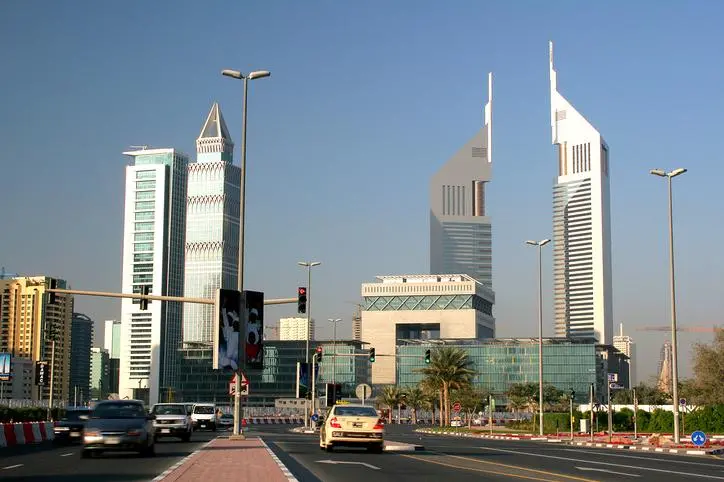PHOTO
ABU DHABI- The UAE central bank expects economic growth to accelerate to 4.2 percent in 2019, with no material impact from the renewal of U.S. sanctions on Iran as long as banks have prepared for the penalties, its governor said on Tuesday. "Things are starting to materialise, growth is there, liquidity is there, a lot of government initiatives are there. I think we are in good times," Mubarak Rashed al-Mansoori said at a conference in Abu Dhabi.
The central bank said in September it expected the United Arab Emirates' inflation-adjusted gross domestic product to expand by 2.3 percent in 2018. But Mansoori said on Tuesday that the bank hoped to close the year at 2.8 percent growth.
He later told reporters that growth forecasts for next year were mainly driven by oil, but there would be strong contributions from the non-oil sector as well. Fitch Ratings said this week that higher oil prices are leading to a rapid rebound of revenue and continued increases in government spending in the UAE.
The increased expenditure, which constitutes a loosening of underlying fiscal policy, follows significant structural fiscal reforms and spending cuts undertaken in 2015 and 2016 and the resulting slowdown of growth, it said.
Historically, the UAE and Iran have been close trade partners because of their geographic proximity but political tensions have frayed those ties in recent years.
In a move that could further dent commercial links between the two neighbours, the U.S. on Monday snapped sanctions back in place to choke Iran's oil and shipping industries.
CONSOLIDATION
"Actually, we don't expect material impact provided that when the previous sanctions were on, banks have taken measures and when they lifted sanctions, banks did not go back as normal due to having to keep their relations with clearing banks in the U.S.", Mansoori told reporters on the sidelines of the conference.
The two Iranian banks operating in the UAE will continue to operate because they have minimal operations only dealing with Iranians living in the country, said Mansoori.
Bank Melli and Bank Saderat both have branches in the UAE.
Mansoori said with the federal debt law of the UAE now passed, the central bank will issue debt, bonds and sukuk.
"We will only issue as an agent for the government, if the government wants to issue debt."
He said the debt issuance will help build a yield curve that is going to set the stage for banks as well as other borrowers to tap capital markets.
He said a UAE three-way bank merger was complex and in its early stages - and he expected to see more consolidation in the region.
Abu Dhabi Commercial Bank, Union National Bank and Al Hilal Bank are in talks for a deal that could form a lender with $113 billion in assets.
(Reporting by Saeed Azhar and Stanley Carvalho; Writing by Davide Barbuscia; Editing by Andrew Heavens) ((Davide.Barbuscia@thomsonreuters.com; +971522604297; Reuters Messaging: davide.barbuscia.reuters.com@reuters.net))





















